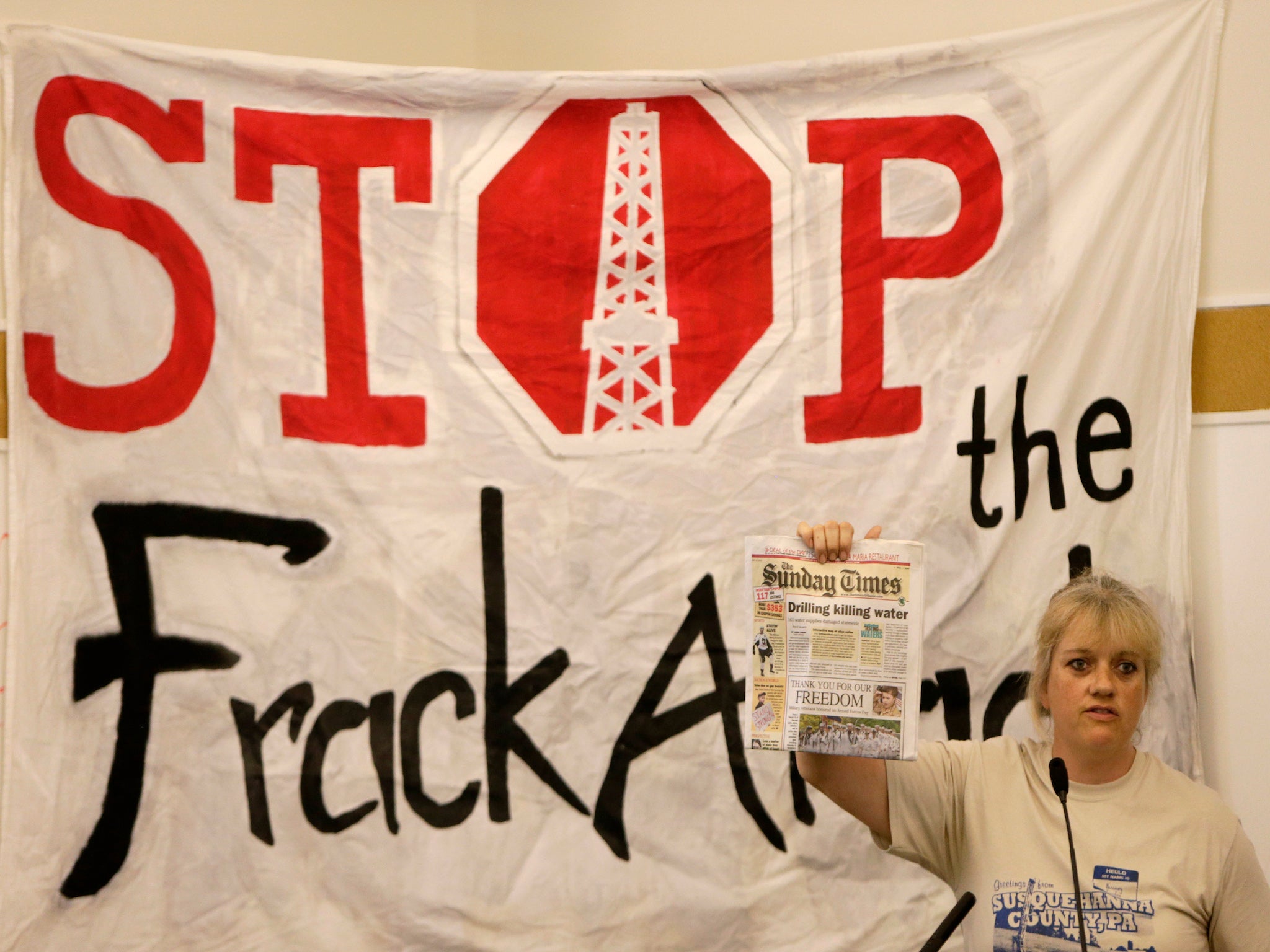Pennsylvania: Fracking chemicals detected in drinking water, says report
Study found traces of chemicals in drinking water at three homes

Your support helps us to tell the story
From reproductive rights to climate change to Big Tech, The Independent is on the ground when the story is developing. Whether it's investigating the financials of Elon Musk's pro-Trump PAC or producing our latest documentary, 'The A Word', which shines a light on the American women fighting for reproductive rights, we know how important it is to parse out the facts from the messaging.
At such a critical moment in US history, we need reporters on the ground. Your donation allows us to keep sending journalists to speak to both sides of the story.
The Independent is trusted by Americans across the entire political spectrum. And unlike many other quality news outlets, we choose not to lock Americans out of our reporting and analysis with paywalls. We believe quality journalism should be available to everyone, paid for by those who can afford it.
Your support makes all the difference.Residents in parts of Pennsylvania are confronting the danger that chemicals associated with fracking have seeped into drinking water.
A report published in an academic journal reported that an analysis of drinking water sampled from three homes in the state’s Bradford County, had found traces of chemicals commonly found in Marcellus Shale drilling fluids.
Tests shows the water in one household contained tiny amounts of 2-Butoxyethanol or 2BE, a common drilling chemical. Reports say the chemical is known to have caused tumors in rodents, though it is unclear if it could produce similar effects in humans.

In recent years, Pennsylvania, as like many US states, has seen a boom in drilling as a result of the drilling technique known as hydraulic fracturing, or fracking. Reports suggest 66 firms operate a total of 7,788 active wells in the state, with Bradford County to the second highest number.
“Natural gas and other contaminants migrated laterally through kilometres of rock at shallow to intermediate depths, impacting an aquifer used as a potable water source,” said a report published this week by Proceedings of the National Academy of Sciences.
“More such incidents must be analysed and data released publicly so that similar problems can be avoided through use of better management practices.”
Campaigners in Pennsylvania said they were not surprised by the news and that they had been seeking to draw attention to the issues for the best part of a decade.
"We have a book of stories from people who have got sick. We have sold and used the money to buy drinking water," activist John Detwiler of the Marcellus Protest told The Independent. "The industry has done everything it can to deny this."

Activist Vera Scroogins, (above) who has been banned from the sites of drilling operations after escorting journalists in Susquehanna County, said people whose water became contaminated had no alternative but to use bottled supplies or rely on water that was tanked in.
"You can't use the [contaminated] water. It's full of chemicals, heavy metals," she said.
The New York Times said the study, relating to the Marcellus Shale gas development in the north of the state, addresses a longstanding question about potential risks to underground drinking water from fracking.
The paper said the report's lead author, Susan Brantley, Professor of Geosciences at Pennsylvania State University, believed that the contaminants came from either a documented surface tank leak in 2009 or poor drilling.
The nearby gas wells, which were established in 2009, were constructed with a protective intermediate casing of steel and cement from the surface down to almost 1,000 feet. But the wells below that depth lacked the protective casing, and were potentially at greater risk of leaking their contents into the surrounding rock layers, it reported.
Dr Brantley said her wish was to better inform public debate and said that there was very little public data available relating to contminations. She said people could then try and make decisions about the need for securing energy supplies with the potential dangers.
"Society has to decide what degree of problem it is willing to accept," she said.
Join our commenting forum
Join thought-provoking conversations, follow other Independent readers and see their replies
Comments